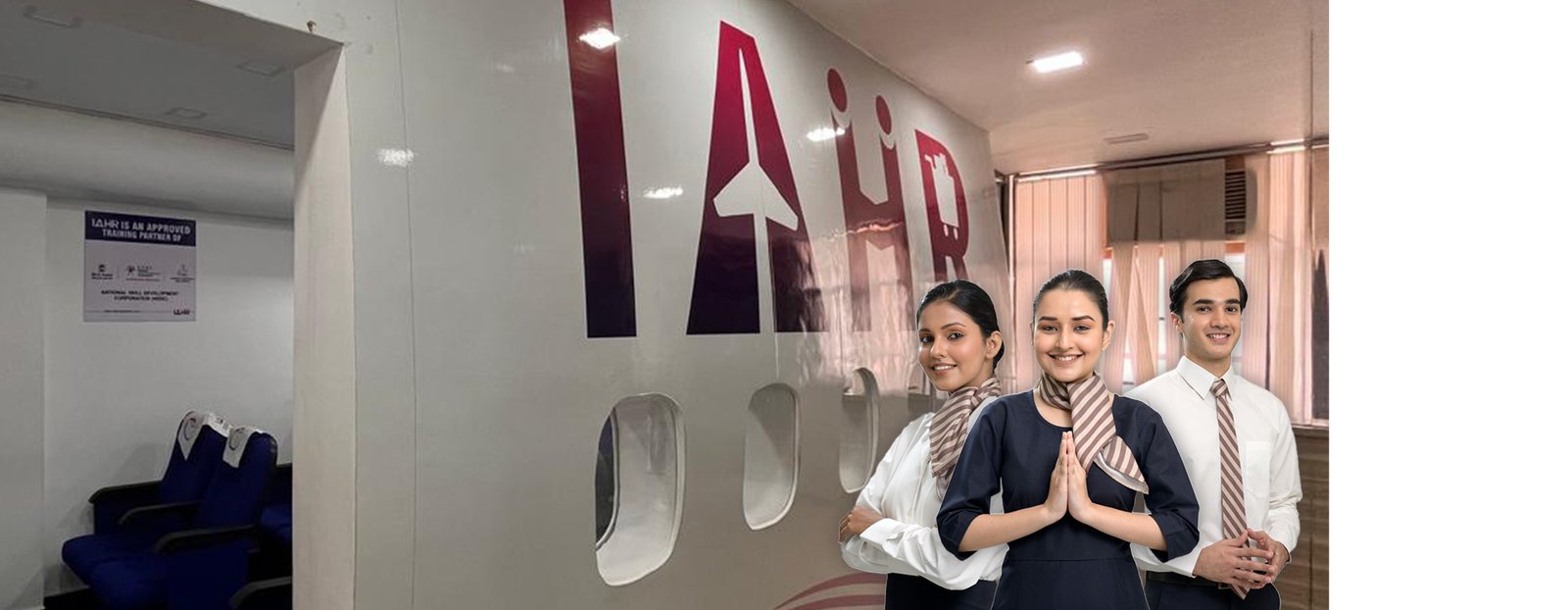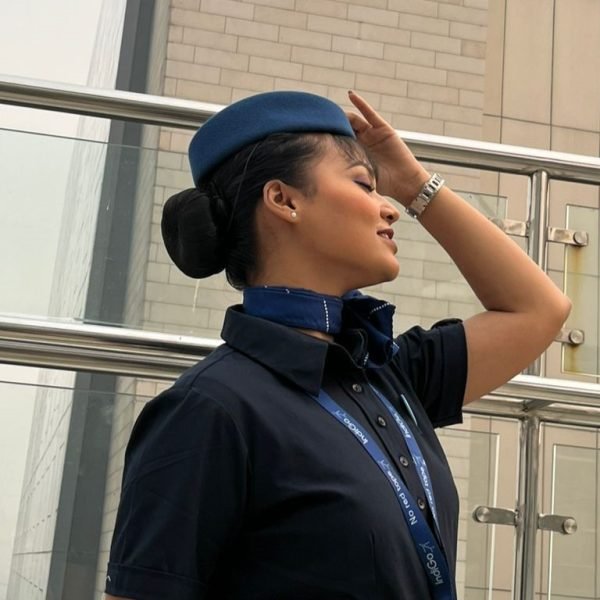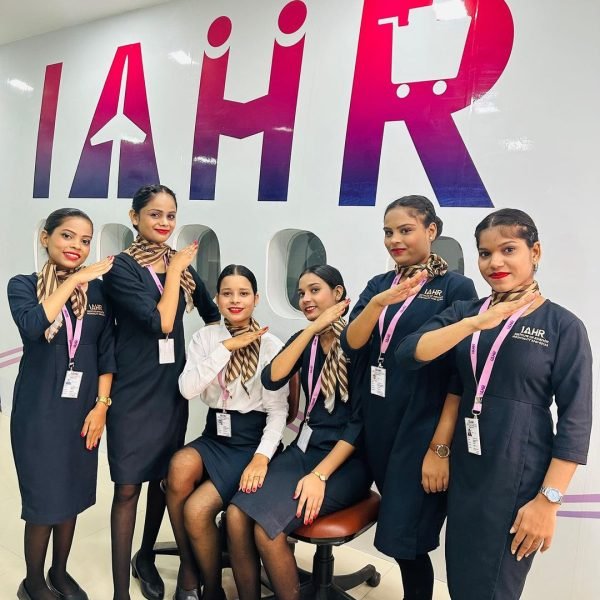Is Aviation a Stable Career in 2025 and Beyond? A Deep Dive into Job Security, Growth, and Opportunities!

Aviation has always captured the imagination of many people, from flying high as a pilot to providing service as a flight attendant. In today’s changing world, one main question stands out: Is aviation a stable career for the long term?
At IAHR, a top air hostess training school, we believe informed career choices lead to brighter futures. In this blog, we’ll look at the stability of the aviation industry, how technology and regulations are changing the field, and whether now is the right time to start a career in aviation.
Understanding the Aviation Industry: An Overview of Stability Factors
To assess the stability of aviation careers, it’s important to first understand the broader aviation landscape. Aviation involves much more than just flying planes; it’s a large system that includes pilots, cabin crew, air traffic controllers, maintenance engineers, logistics managers, and airport operations teams.
Key factors that contribute to job security in aviation include:
– Growing Passenger Demand: Domestic and international air travel is steadily rising, especially in developing countries like India.
– Global Connectivity: Aviation plays a crucial role in global trade and tourism.
– Infrastructure Development: Government investments in airport upgrades and regional air connectivity create more jobs.
According to global aviation employment trends, the industry is expected to see a significant increase in demand for skilled professionals by 2025 and beyond.
The Impact of Economic Cycles on Aviation Careers
Like any global industry, aviation is affected by economic changes. Economic downturns, such as during the 2008 recession or the COVID-19 pandemic, resulted in job losses and grounded fleets. However, the industry has shown consistent resilience.
The effects of recession on aviation jobs often include:
– Short-term layoffs or reduced hours
– Hiring freezes or reductions in fleet size
– A shift in demand from international to domestic routes
Despite these ups and downs, long-term growth trends in aviation have been positive. In India, rising middle-class incomes and low-cost carriers are driving air traffic, helping to cushion the impact of global downturns.
Economic factors that affect airlines, such as fuel prices and currency fluctuations, are beyond individual control, but understanding them can help aviation professionals stay competitive.


The Rise of Technology: How Automation is Shaping Future Careers in Aviation
Automation is changing industries, and aviation is no exception. Advances in aviation technology are transforming everything from flight control to passenger check-ins.
Key Trends:
– AI Impact on Pilots and Crew: While AI can enhance efficiency, the need for human judgment in complex situations ensures that pilots and cabin crew are still vital.
– Automation in Aviation Jobs: Ground operations, security, and maintenance are increasingly using automated tools, which reduces manual tasks and requires new technical skills.
– Future Skills Needed in Aviation: Digital literacy, safety compliance, emotional intelligence, and adaptability are becoming essential for success in aviation.
At IAHR, we prepare students for the future by integrating tech awareness into every course, from cabin crew training to airport management modules.
Diverse Career Paths within the Aviation Sector: Opportunities Beyond Piloting
When people think of aviation, they often picture a pilot or a flight attendant. However, there are many other career options in the aviation industry.
Top Career Opportunities in Aviation:
– Cabin Crew & Air Hostess Jobs: After completing an air hostess course or cabin crew classes, professionals can work with respected airlines to ensure passenger comfort and safety.
– Air Traffic Control Careers: Manage the safe movement of aircraft both in the air and on the ground.
– Aircraft Maintenance Jobs: Ensure flight safety through thorough inspections and repairs.
– Airport Management and Logistics: Oversee terminal operations, security, and cargo logistics.
If you are considering air hostess courses after 12th grade, IAHR offers diploma-level training that covers communication, grooming, safety procedures, and emergency handling, so you are ready for the job.
Regulatory Changes and Their Influence on Job Stability in Aviation
Aviation regulations affect careers in various ways. New safety standards, environmental laws, and digital compliance requirements are reshaping job roles and creating new opportunities.
Recent Regulatory Trends:
– Safety Regulations for Pilots and Crew Members: Stricter training and health standards have led to a higher demand for certified professionals.
– Government Policies Affecting Airlines: In India, the UDAN scheme aims to improve regional connectivity by opening new airline routes, increasing the need for trained aviation personnel.
Institutes like IAHR quickly adapt to these changing standards by updating course material and ensuring compliant training. Whether you want to become a cabin crew member or explore airport management courses, aligning your education with current regulations is essential for long-term job stability.
The Future Outlook: Is Now a Good Time to Pursue a Career in Aviation?
With travel rebounding after the pandemic and increasing digitization, the future of aviation jobs looks promising through 2025 and beyond.
Reasons Why Aviation is a Good Career Choice Today:
– Growing Job Demand: Forecasts indicate India will need over 10,000 pilots and more than 30,000 cabin crew members by 2027.
– Global Opportunities: A diploma from a respected air hostess institute in Delhi or an air hostess course in Mumbai can lead to international placements.
– Attractive Salary Packages: Entry-level salaries for air hostesses range from ₹25,000 to ₹60,000 per month, with significant increases based on experience and the airline.
– Career Progression: Cabin crew members can advance to senior roles such as in-flight supervisors, trainers, or ground staff coordinators.
Whether you’re interested in pilot training in India, cabin crew training, or vocational courses like airport management, now is the ideal time to start.
Conclusion: Evaluating Your Career Choices—Is a Long-Term Career in Aviation Right for You?
Aviation is no longer a niche but a global necessity. Despite periodic economic disturbances or automation changes, the industry consistently grows and adapts. For students passionate about travel, communication, and customer service, it offers one of the most satisfying and dynamic career paths.
At IAHR, we focus on developing future-ready professionals through practical aviation courses, cabin crew classes, and air hostess training. With experienced faculty, hands-on exposure, and placement support, we prepare you not just for a job but for a sustainable, long-term career in aviation.

